Game-changing EHR optimization
The fact that more than 90% of HCPs — across all specialties and geographic areas — use an EHR won’t surprise pharma brand marketers. But did you know that your target HCPs spend an average of 5.3 of every 8 hours of clinical time using their EHR?
The EHR is how your target HCPs diagnose problems, order treatments and prescribe medications, but many of them don’t know how these tools can actually streamline clinical processes. And because pharma marketers don’t have access to EHR systems or the insights necessary to educate HCPs on EHR capabilities, they’re often unable to leverage these tools as part of a brand strategy.
When these barriers can be broken down, and pharma brands realize the opportunities of EHR optimization, everybody wins.
Don’t settle for banner ads. It’s time to tap into the game-changing potential of an EHR strategy.
Ready to explore the possibilities? Dive in for expert insights and powerful EHR enablement strategies.
- Understand the basics of EHR functionality
- Learn how AI and machine learning are changing EHRs
- Find out how provider organizations use the EHR to impact your uptake
- Explore wider applications for EHR enablement
- Keep your EHR optimization strategy compliant
- Remove obstacles to prescribing with EHR apps
Understand the basics of EHR functionality
Providers use EHR platforms to capture their exam room notes and prescribe drug therapies, but that’s not all that these technologies can accomplish. Although the platforms differ in terminology and functionality, most offer features that empower HCPs to:
- Mark individual drugs as favorites
- Proactively identify patients who fit specific diagnostic criteria
- Add a drug therapy to existing, predetermined order sets
- Connect patients to support resources faster
The pressures of a heavy caseload prevent many HCPs from using these features to their full extent, even if it would streamline workflows or simplify their clinical tasks. Ideally, your pharma reps would understand the shortcuts and be ready to offer pro tips that help providers immediately, even during a short, in-person meeting. In addition to helping the HCP, those efforts can also bolster your brand’s growth by keeping your drug top-of-mind at the point of care.
Field teams face multiple hurdles to implementing EHR strategies for the brands they represent. Some of the most common include lack of knowledge and insight about:
- Which EHRs their target accounts use
- Basic functionality of EHR platforms
- The unique vocabulary each EHR uses — even nearly identical features can have totally different names with different step-by-step descriptions from one EHR platform to another
- How a given EHR might impact an HCP’s workflow, and how to influence that process ethically
Until your team knows how to leverage the unique EHR features that your target HCPs use, they won’t be able to unlock the opportunities EHRs present and make it more likely that HCPs will prescribe your brand at the moment of care.
Learn how AI and machine learning are changing EHRs
Some EHR platforms have deployed artificial intelligence (AI) to make their systems smarter and more responsive. The EMA EHR, popular with dermatologists, uses machine learning to automatically suggest protocols based on an HCP’s previous prescribing behavior. Because AI relies on data to inform what it suggests, this development serves established brands well but may be a problem for newly launched treatments or teams looking to boost market share for their drugs.
Success is where preparation and opportunity meet.
Bobby Unser, Motorsports Hall of Fame racecar driver
At the same time, AI-driven EHRs offer great opportunities for brands that know how to empower HCPs to navigate those features. For example, some of these platforms use algorithms to analyze patient populations for commonalities, making precision medicine and clinical trial candidate identification easier.
And in the case of the prescription autosuggestion, through EHR optimization, field reps can tell an HCP how to mark their brand as a favorite. In this way, the rep helps put that functionality to work for their brand rather than against it.
Find out how provider organizations use the EHR
As more and more HCPs move from private practices into provider organizations, their EHR experiences change. Tasked with standardizing and streamlining care, provider organizations often heavily influence the drugs HCPs prescribe, and when they can prescribe them.
This is particularly true in oncology. Hastened by fast-moving cancer research, drug indications change quickly and frequently. Unfortunately, the internal order sets within an organization’s EHR system may not keep pace with the latest clinical trial data.
In fact, recent research indicates that 30%-40% of order sets have errors. Some institutions can take six to nine months to update the information in their EHRs, and sometimes old information gets copied and pasted into new order sets. Whatever the cause, these inaccuracies can affect patient safety and delay prescriptions.
Recent research indicates that 30%-40% of user sets in EHRs have errors … which can affect patient safety and delay prescriptions.
Pharma marketers and reps can’t directly make changes in the EHR, but reps can teach HCPs how to initiate order set updates. This guidance helps ensure that order sets related to the product at hand reflect the most recent information and indications. In this way, field teams become valued resources, and drive prescriptions by helping oncologists solve problems with their EHRs while promoting patient safety and better outcomes.
Explore wider applications for EHR enablement
Doctors may not see patients who would benefit from your drug every day, so reminders about your therapy can help match the right patient with your drug when the time is right. But how can your field team choose the best times for those touchpoints?
Omnichannel pull-through is critical for your brand’s success, but so is EHR optimization. In many EHR interfaces, HCPs can:
- Create lists of patients in their care who would benefit from a drug therapy
- Receive alerts when new patients match with the demographic or diagnostic criteria in a medication package insert
- Set clinical decision alerts to match new patients to rare disease drugs quickly — when HCPs may not see the condition regularly enough for a brand name to be top of mind
Helping HCPs navigate their EHR can be a game-changer for rare disease treatment brands, but it can also drive market share from drugs in highly specialized practices like gastroenterology. Done well, EHR optimization isn’t only about little tweaks, it’s also about a strategic approach to how EHR functionality can help your target HCPs and, in turn, boost your brand’s performance.
Knowledge of EHR functionality can also assist brands in identifying and recruiting clinical trial participants. Coordinators and nurses at activated clinical trial sites can mine EHR data for patients who might meet study requirements, dramatically speeding enrollment and making study preparation more efficient.
Keep your EHR optimization strategy compliant
Many pharma brands worry that interfering with EHR platforms will run afoul of legal and regulatory rules. That concern is not misplaced. Electronic medical records are not in the public domain, and they are not a marketing channel. Your digital strategy can’t be cut and pasted into an EHR optimization plan.
And yet, when your brand runs into an EHR roadblock, and suddenly HCPs can’t write your drug, or your KAM team hears that there is a flag on your product, you don’t have time to scramble. You need an EHR strategy in place.
So, how do ethical pharma brands build EHR optimization into their larger brand strategies?
The best way to ensure you’re in compliance is to partner with organizations that have legitimate EHR insight and are strictly accountable to applicable laws and regulations. When choosing that partner, look for:
- Experience: How long has the organization been in the field?
- Expertise: How closely have the consultants worked with EHR technology and in what context? How many EHR platforms are they familiar with?
- Access: How does the organization keep up with new updates and releases?
- Standards: How closely do the organization’s security and compliance policies match your own?
- Methods: Does the organization make questionable promises, such as being able to place ads directly in provider workflows, which is impossible and unwelcome with major EHR platforms, or advise questionable practices, such as inviting pharma teams to venture too closely to ethical gray areas?
Your EHR optimization strategy is important. But your brand’s legal and ethical reputation is even more critical.
Amplify your brand with EHR optimization
EHRconnect trains your team to translate EHR functionality into direct wins for your brand.


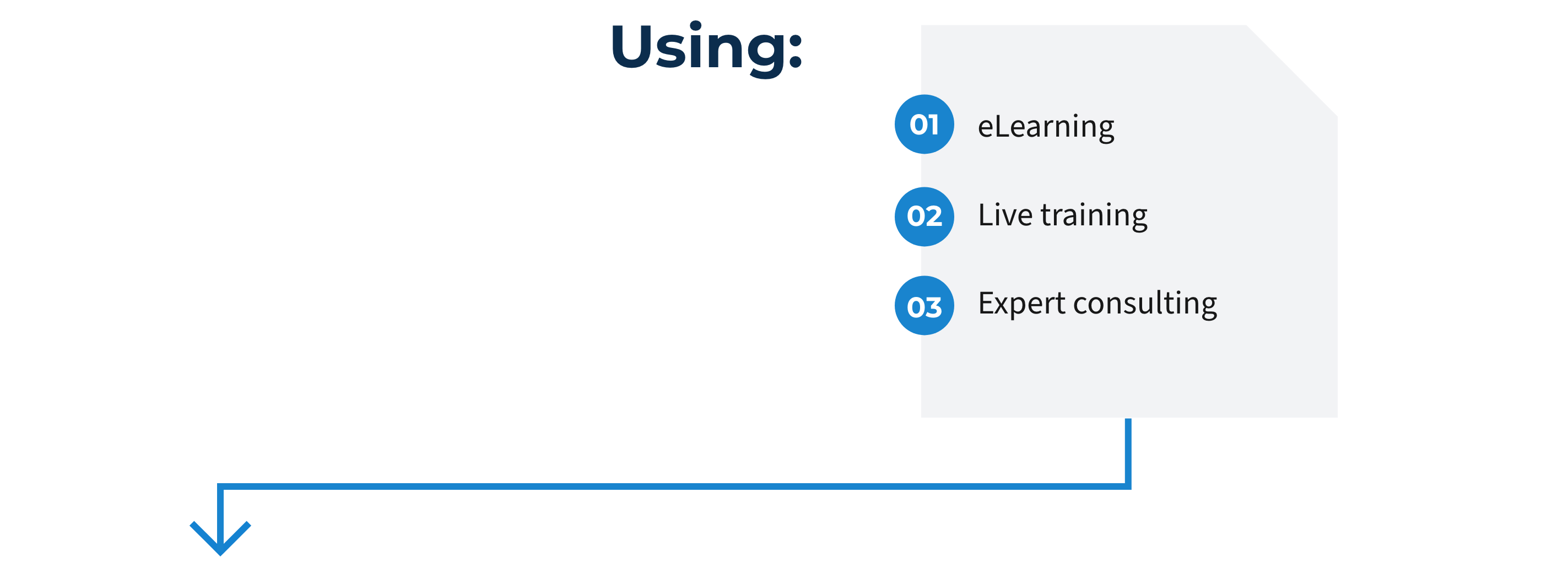
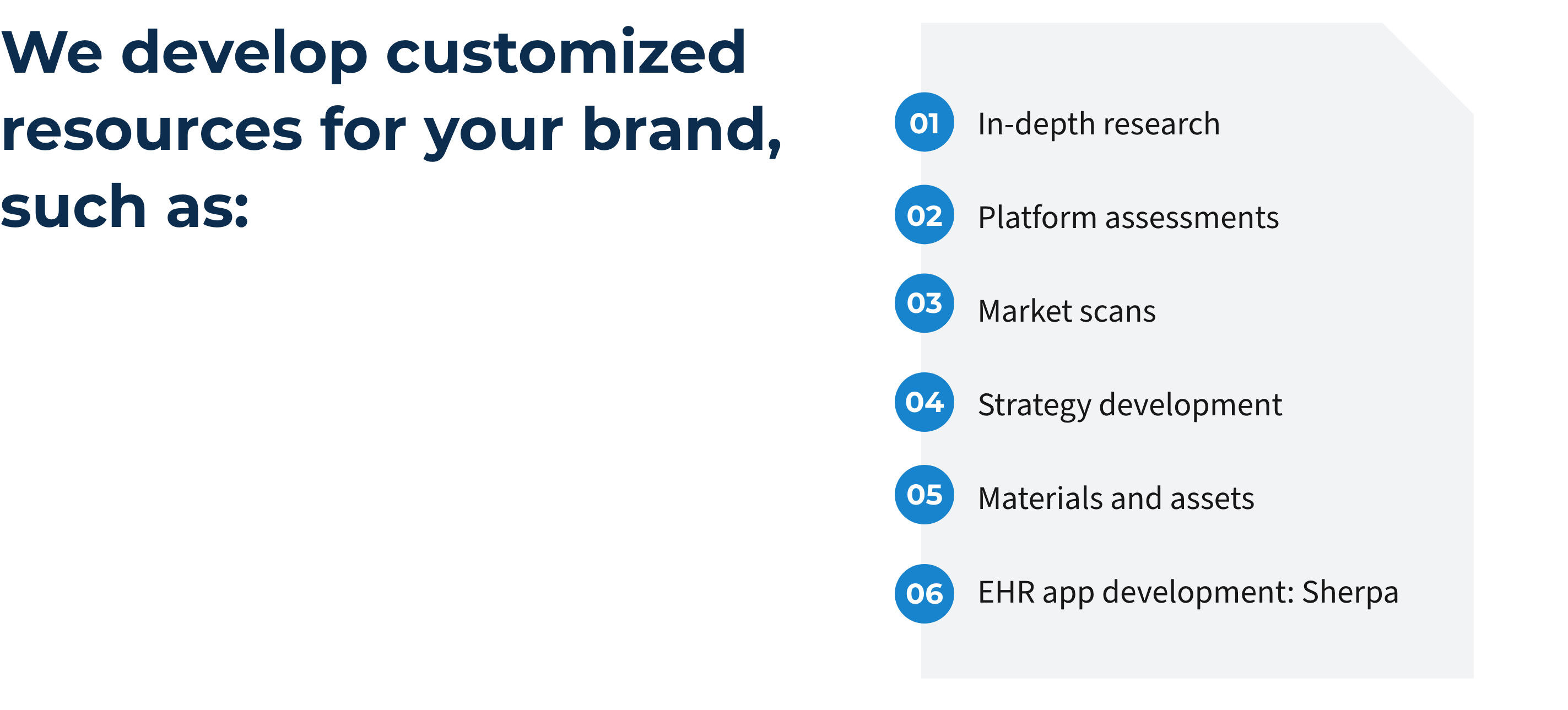
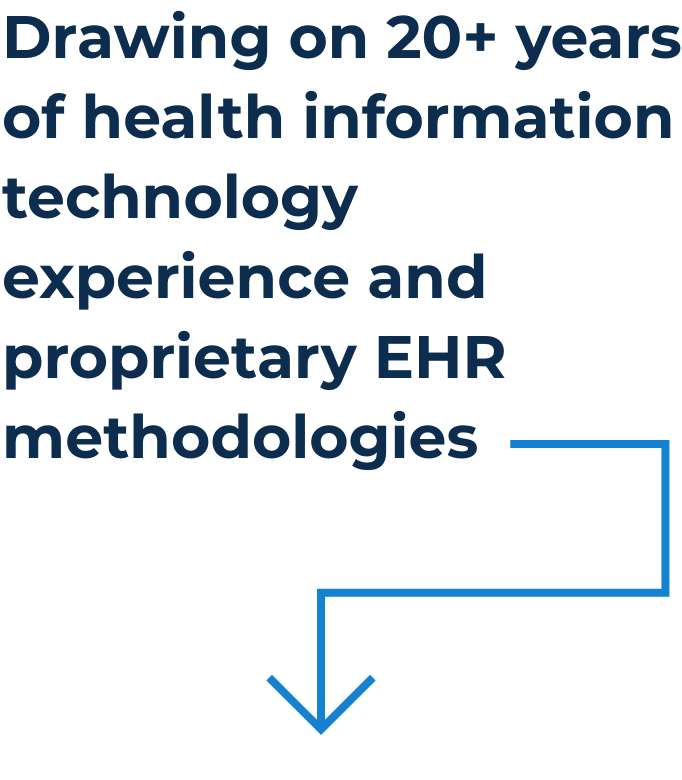
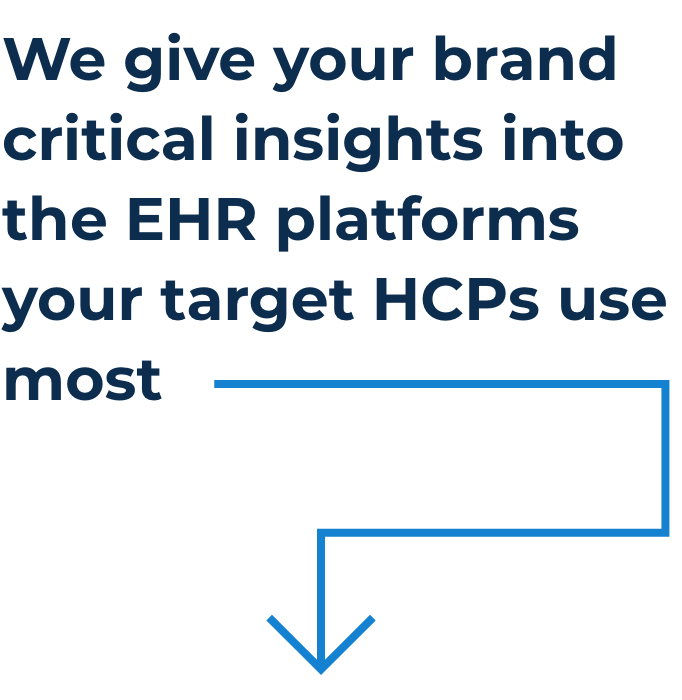
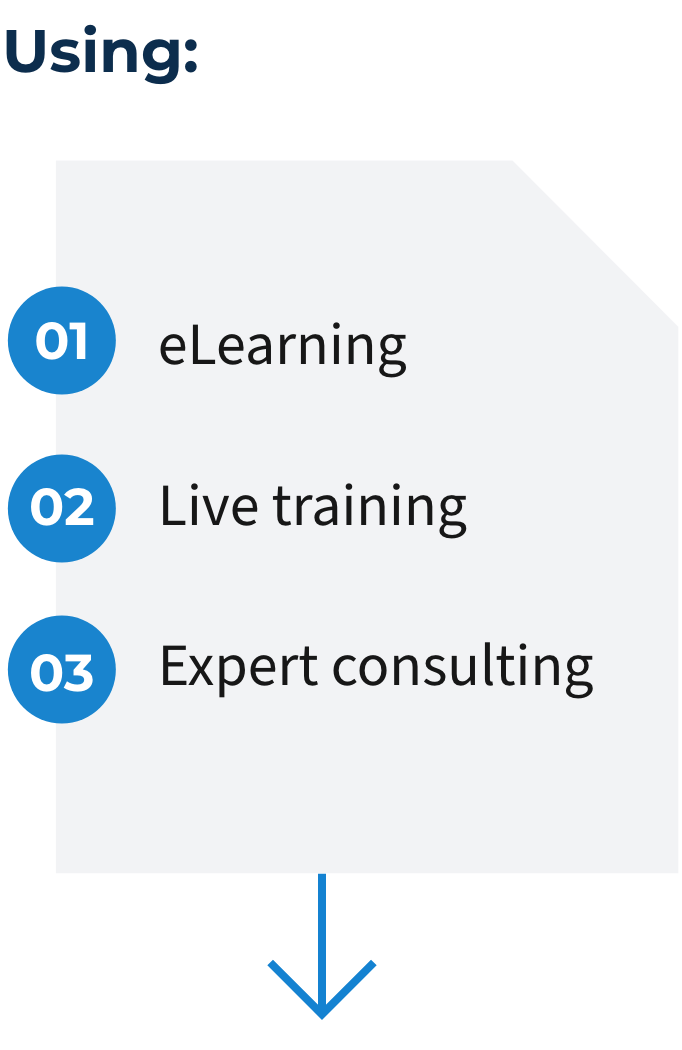

Pharma teams who partner with EHRconnect reach HCPs at the moment of care, become trusted resources, and find sophisticated EHR optimization strategies to drive brand growth.
Unlock the possibilities of the platforms that drive HCP workflows. Let’s get started.
